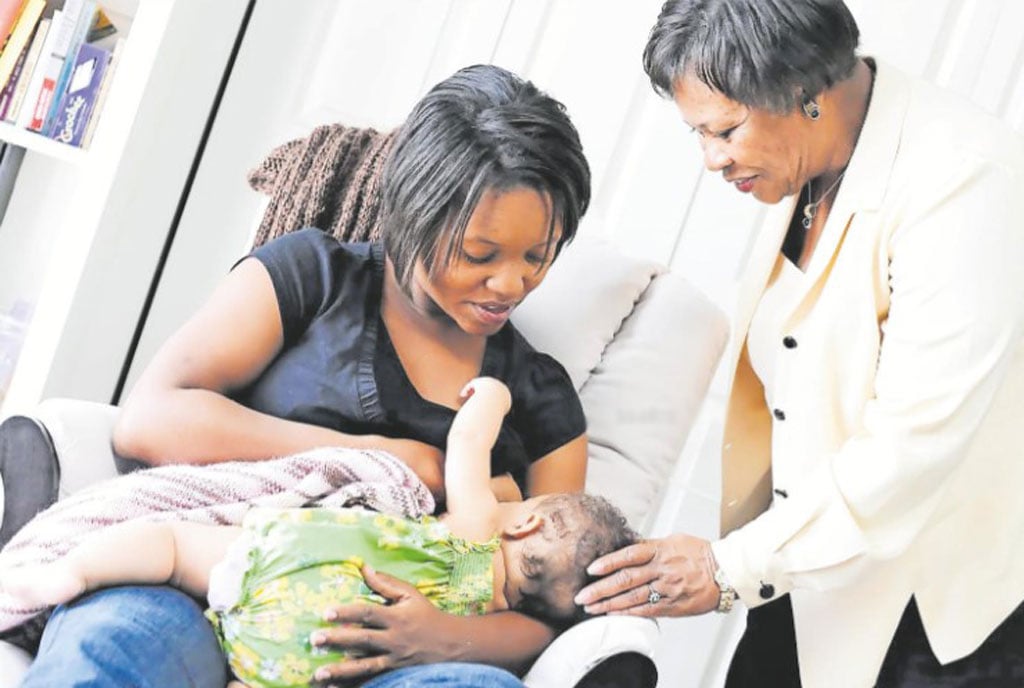
Lactation consultants, skilled in both basic and advanced support, often assist first-time mothers who lack knowledge about breastfeeding. PHOTO/WWW.MASSLCA.ORG
Doreen Mazakpwe’s decision to pursue a career in breastfeeding, lactation, and nutrition support felt like a natural path. She considers the first 1,000 days of a child’s life, from conception to a baby’s second birthday, to be a critical window of opportunity that profoundly shapes a child’s growth and development. As a medical professional, Mazakpwe realised early that the foundation laid during this time significantly impacts a child’s future.
However, her journey became deeply personal when she had her first child, almost 12 years ago.
“As a doctor, I knew that breastfeeding was essential, especially considering my child’s challenging birth,” she recalls.
Her waters broke before labour began, leading to an emergency C-section after a prolonged, strenuous labour due to the baby’s incorrect position. Her daughter, suffering from birth asphyxia, required additional monitoring in the nursery. Mazakpwe could only breastfeed 12 hours after delivery, but even then, she felt she had minimal support.
“I faced challenges with flat nipples and developed painful sores by the second month, and my baby even experienced seizures during attempts to breastfeed,” she shares.
Despite seeking help, Mazakpwe felt isolated and disappointed by the lack of practical support from paediatricians, midwives, and healthcare workers. Determined to overcome her challenges, she persisted through physical pain and emotional strain, looking for assistance outside the hospital. However, even there, her needs were largely dismissed.
Finding support
Her turning point came when she received a booklet that accompanied a breast pump gifted by a friend. As she prepared to return to work and needed to pump breast milk for her child, the booklet introduced her to techniques for managing nipple soreness and other breastfeeding challenges.
It also informed her about lactation consultants, a field she discovered had existed for more than 30 years but had never encountered during her training. Recognising this gap in knowledge and support, she felt compelled to offer mothers the assistance she had not received.
Growing passion
While working full-time as a research study coordinator at the Infectious Diseases Institute, Mazakpwe began educating others about breastfeeding in her spare time. Initially, her audience consisted of curious colleagues who noticed her pumping breast milk. As her passion for breastfeeding advocacy grew, she started offering one-on-one antenatal classes and distributed self-printed flyers.
Her outreach expanded to pregnant women in her church, where she shared valuable information and encouraged them to spread the word. In 2013, motivated by a United Nations International Children’s Emergency Fund press release about World Breastfeeding Week, she decided to commit more fully to breastfeeding advocacy.
Mazakpwe then turned to social media to enhance her outreach. She collected phone numbers from mothers and sent SMS messages promoting breastfeeding. At that time, she had not received any formal training. Eventually, she began charging for her services, although her first home visit was provided free of charge. One of her early clients was a doctor, who received support during and after pregnancy, marking the beginning of Mazakpwe’s professional journey in breastfeeding support.
Who needs a lactation consultant?
Any mother, Mazakpwe says, can benefit from lactation support, though not all need a full consultation. Lactation consultants, skilled in both basic and advanced support, often assist first-time mothers who lack knowledge about breastfeeding.
“We address issues such as positioning, latching, and ensuring a comfortable feeding experience for both mother and baby,” she says.
Common issues she addresses include supply problems which includes low and oversupply, going beyond simple advice to root causes, using techniques, and, if needed, medication. She also deals with latching issues or when babies struggle to attach properly, sometimes resulting in pain for the mother.
“These include cracked nipples, flat or inverted nipples, which was also my problem, baby biting the breast, among other issues,” she says.
Breast conditions
Her work also involves managing conditions such as engorgement, mastitis, abscesses, and blocked ducts. For instance, mastitis might require antibiotics. It is the inflammation of the breast, usually associated with breastfeeding. Symptoms typically include local pain and often an associated fever and general soreness. This usually occurs within the first few months of delivery.
Abscesses, on the other hand, may need surgery. An abscess is a painful collection of pus that forms in the breast. Most abscesses develop just under the skin and are caused by a bacterial infection.
“Additionally, mothers with multiple babies, previous breastfeeding difficulties, or specific plans (such as choosing not to breastfeed) also benefit from consulting with us, as we are equipped to handle various infant feeding concerns,” she says.
Typical outreach process
“We offer in-person consultations at hospitals or the mother’s home, as well as virtual options,” she says, adding that standard consultation costs about Shs100,000 per hour. After creating a care plan, she supports mothers through a follow-up period, typically lasting two weeks to a month, to monitor progress and adjust as needed.
Professional growth and certification
In 2017, Mazakpwe began her journey to obtain international credentials through Pathway 1, a programme designed for healthcare professionals. She started her career as a lactation counsellor after completing a self-paced module in lactation management offered by WellSTART International.
Her first professional role was at a women’s hospital, where she supported mothers. After some time, she took maternity leave for her second child, but she continued to pursue further qualifications during this period.
To gain additional expertise, she sought guidance from WellSTART, which encouraged her to use her knowledge to support as many mothers as possible.
At the same time, she enrolled in a Master’s degree programme in Human Nutrition at Uganda Christian University, which she completed in 2022, despite experiencing delays due to Covid-19. She continued her work at TMR International Hospital, where she served as a lactation consultant.
After accumulating 1,000 hours of supervised support, as required for international certification, she completed additional health science courses and advanced lactation education. In March 2023, she successfully passed her certification exam, officially becoming an International Board-Certified Lactation Consultant (IBCLC).
Training and advocacy
Mazakpwe enhanced her expertise by training as a facilitator for breastfeeding counsellors with the International Baby Foods Action Network (IBFAN), an organisation that advocates for breastfeeding. Through courses offered by Lactation Education Resources, she further developed her skills and knowledge. With her Certified Breastfeeding Specialist credential, she continues to support and educate mothers, helping them navigate the complexities of breastfeeding.
Mazakpwe believes that, with more lactation consultants available, mothers will begin to understand that pain during breastfeeding is not normal and can be addressed.
Through projects such as Naturally Nourish, she hopes to offer a solution, helping mothers avoid the challenges she once faced and empowering healthcare providers to deliver better care.




